Saudi Arabia To Invite Syria's Assad To Arab leaders Summit, Sources Say
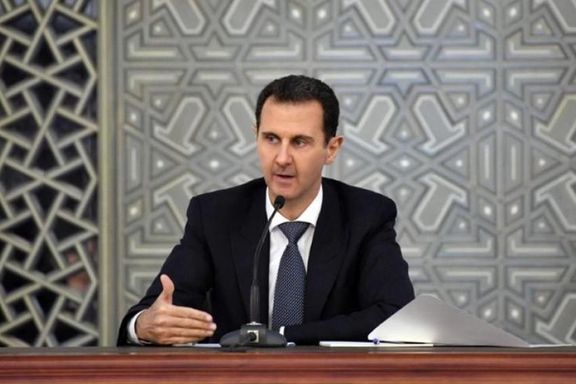
Saudi Arabia is planning to invite Syrian President Bashar al-Assad to an Arab League summit that Riyadh is hosting in May, three sources familiar with the plans told Reuters.

Saudi Arabia is planning to invite Syrian President Bashar al-Assad to an Arab League summit that Riyadh is hosting in May, three sources familiar with the plans told Reuters.
The move would formally end Assad’s regional isolation.
Saudi Foreign Minister Prince Faisal bin Farhan will travel to Damascus in coming weeks to hand Assad a formal invitation to attend the summit scheduled for May 19, two of the sources said.
Assad's attendance at an Arab League summit would mark the most significant development in his rehabilitation within the Arab world since 2011, when Syria was suspended from the organization.
Syria's return to the 22-member body would be mostly symbolic but it reflects a change in the regional approach towards the Syrian conflict.
Last month sources told Reuters Riyadh and Damascus had reached an agreement to reopen their embassies after the Muslim holy month of Ramadan.
One of the three sources said discussions have been ongoing for more than a year over a list of demands from Saudi Arabia, including close cooperation on border security and drug trafficking.
Arab League heavyweight Egypt has also resumed contacts with Assad. Both sides agreed to strengthen cooperation on Saturday during the first official visit by a Syrian foreign minister to Cairo in over a decade.
Some countries, including the United States and Qatar, have opposed the normalization of ties with Assad, citing his government's brutality during the conflict and the need to see progress towards a political solution in Syria.
Contacts between Saudi and Syrian officials gathered momentum following a landmark agreement in March between Saudi Arabia and Iran, Assad's main backer, to re-establish ties.
The rapprochement between Riyadh and Tehran is part of major regional realignment, amid rising tensions between Iran and Israel.
Reporting by Reuters
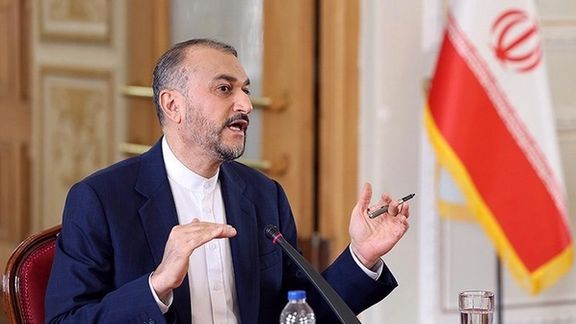
Iran’s foreign minister says within the next 48 hours he will have a phone conversation with his Saudi counterpart to confirm the date and venue of their expected meeting.
Hossein Amir-Abdollahian made the comments on Saturday on the occasion of the national flag day.
Following the recent agreement between Iran and Saudi Arabia in Beijing to resume diplomatic relations and reopen embassies and consulates, Amir-Abdollahian and his Saudi counterpart, Faisal bin Farhan, had two phone conversations. During their second phone call, it was agreed that the two foreign ministers hold a meeting in the fasting month of Ramadan.
Iranian foreign minister further claimed that the Islamic Republic “owes its legitimacy to the great people of Iran, and the key to the stability of the Islamic Republic is the continuation of such legitimacy and the vote of people.”
“In the past forty-four years, the enemies made many efforts to incur their enmity against the Islamic Republic…and the holy flag of Iran. However, hoisting of Iranian flag after 44 years proves the failure of their policy and…the heart-felt interest of Iranians all over the world for the great and Islamic Iran,” he added.
His statements come as the Islamic regime has been facing a more serious legitimacy crisis over the past six month with mass protests across the country with people clearly calling for the ouster of the regime.
He also talks of heart-felt support of Iranians across the world as tens of thousands of Iranian living abroad have repeatedly staged protests in different cities of the world to condemn the brutality of the regime which killed over 500 protesters and wounded many more since the death of Mahsa Amini in police custody in September.
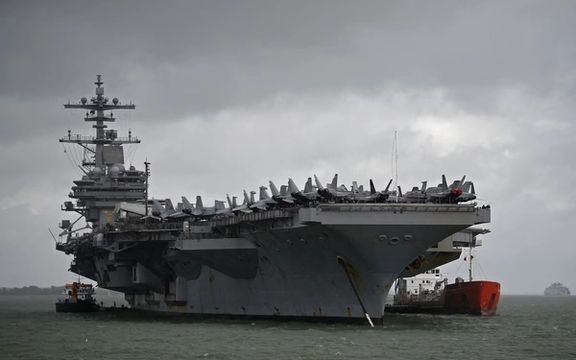
The US has decided to extend the deployment of the George H.W. Bush carrier strike group after last week's deadly attacks by Iran-backed forces.
The decision likely means the Bush strike group and its more than 5,000 US forces, which are now in the European Command operational area, will not be returning to home port in the United States on schedule.
US Central Command (CENTCOM) spokesperson Colonel Joe Buccino said: ”The extension of the George HW Bush Carrier Strike Group, inclusive of the USS Leyte Gulf, the USS Delbert D. Black, and the USNS Arctic, allows options to potentially bolster the capabilities of CENTCOM to respond to a range of contingencies in the Middle East.”
Buccino also noted a scheduled, expedited deployment of a squadron of A-10 attack aircraft to the region at a time when many of the country’s forces had been hoping for a withdrawal after an eight-year US deployment where along with Kurdish-led partners, the US is battling against the remnants of Islamic State
News of the deployment came a day after the Pentagon doubled its tally of American troops wounded in last week's attacks in Syria to 12, following the diagnosis of six US military personnel with traumatic brain injuries. The attacks also killed an American contractor and injured another.
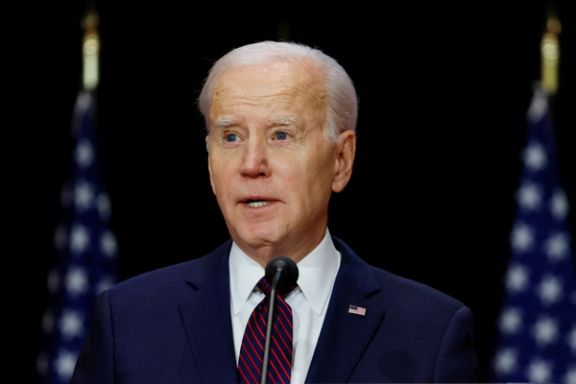
President Joe Biden warned Iran last week that the United States would act forcefully to protect Americans. The Pentagon has estimated eight militants were killed during retaliatory US airstrikes against two Iran-linked facilities in Syria during the tit-for-tat exchanges triggered by the first March 23 attack against a US base near the Syrian city of Hasaka.
Meanwhile, a senior member of the Russian military has called the US actions in Syria “provocative”. Russia, which wants the US presence removed from the area to allow it greater control, accused US forces of being spotted in areas outside the agreed zones.
Hundreds of ISIS fighters remain camped in desolate areas where neither the coalition nor the Syrian army exert full control. Russia - which together with Turkey is carrying out joint patrols in northern Syria - has agreed special zones where the coalition can operate.
Russian Rear Admiral Oleg Gurinov, head of the Russian Reconciliation Centre for Syria, told Russian news agency Tass that US forces had been spotted twice in areas which lay outside the agreed zones.
"Provocative actions on the part of US armed forces units have been noted in Hasaka province”, adding that the Russian side has lodged a protest with the coalition.
Russia intervened in the Syrian Civil War in 2015, tipping the balance in President Bashar Al-Assad's favour, leaving in its wake a complicated power struggle. Moscow has since expanded its military facilities in the country with a permanent air base and naval base.
Clearly aligned with Iran, which is supplying Russia with drones being used in its invasion of Ukraine, a Russian presence only strengthens Iranian influence in a region where Iranian proxies continue to wreak havoc.
Of 83 attacks in Iraq and Syria since President Joe Biden took office, just four retaliations have taken place, according to the Pentagon.
Republican lawmakers have demanded a more forceful deterrence against the Iranian regime, arguing that weak responses will invite more attacks on US forces.
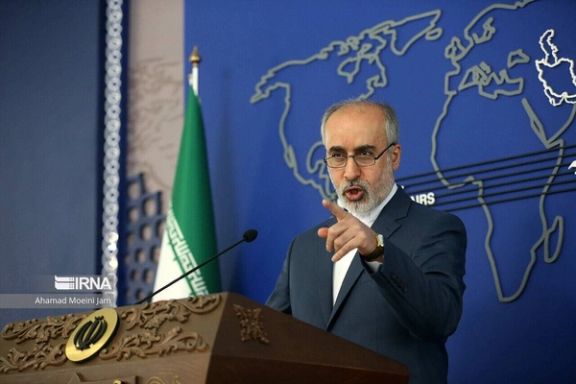
The Iranian Foreign Ministry has called crisis talks with Azerbaijan officials after comments at the opening of its embassy in Israel suggested a united front against Iran.
Israel’s foreign minister, Eli Cohen, called Iran “a regional threat”, raising alarm bells among regime officials who fear its archenemy is using Azerbaijan as a base to launch attacks on the Islamic Republic.
Cohen said, “Israel and Azerbaijan must share the same understanding regarding the Iranian threat. Iran threatens our region, and creates non-stability in the Middle East by supporting and financing terrorism. We should jointly act against Iran. We should not allow Iran to expand its nuclear opportunities.”
In a stark warning, Iran’s foreign ministry spokesman, Nasser Kanaani, said the regime is watching. “It is expected from Azerbaijan's government to stay away from the trap set by enemies of the two countries' relations," he said.
Though Israel has had a diplomatic presence in Azerbaijan since the 90s, the move to open an embassy in Tel Aviv was a major diplomatic coup for Israel, as it further deepens ties with its Muslim neighbors.
”It is evident that the Islamic Republic of Iran cannot remain indifferent to the Zionist regime's plot from the soil of the Republic of Azerbaijan,” Kanaani added.
Earlier in the month, Azerbaijan's new ambassador to Israel Mukhtar Mammadov, said his country would not let Israel’s military to use Azerbaijan as a base for a possible attack against Iran, denying previous reports about preparing an airfield to assist Israel during possible attacks on the Islamic Republic.

Following a visit to capital Tehran for a football (soccer) friendly with the Iranian squad, Russian national players have spoken out about the subpar conditions of their stay in Iran.
About a week after the Russian striker Nikolay Komlichenko criticized the low quality of conditions in Tehran, two other Russian footballers also expressed dissatisfaction on Wednesday with the team's stay in the Iranian capital.
This has upset many Iranians, including well-known figures in the world of soccer.
Russia, which was banned from Euro 2024 by UEFA following the invasion of Ukraine, drew 1-1 with Iran in the international friendly in Tehran last Thursday, March 23. Russia’s Anton Miranchuk scored from the penalty spot in the 29th minute and Mehdi Taremi equalized the match from the spot in the 47th minute.

Danil Prutsev, the midfielder of the Russian national team and Spartak Moscow club, bemoaned about his trip to Iran, saying "there were internet problems, and it was difficult to communicate with our family."
Also on Wednesday, Dynamo Moscow club Striker Konstantin Tyukavin said in an interview with Sport24 that he was uncomfortable in Iran.
“To be honest, all the time that we spent there, I was somehow uncomfortable… The internet didn't work. I was using my mobile network because nothing was loading from the local Wi-Fi. In order to enter the Telegram (messaging app), you had to download a certain VPN. In fact, we spent three days without the Internet,” he said. “The weather was strange and always foggy,” he added.
Their remarks echoed similar ones by their teammate Nikolai Komlichenko, who described the standard of living in Tehran as much lower than that of Uzbekistan.
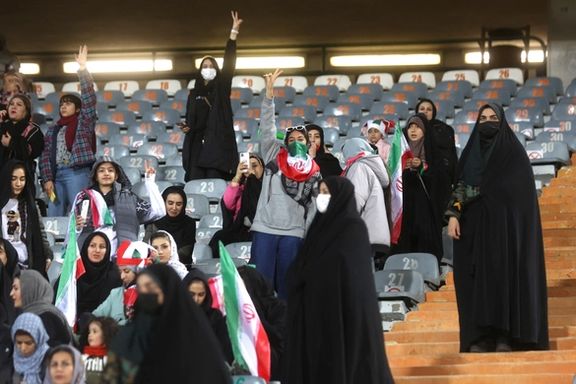
“I didn’t really like it in terms of everyday life. Everything was at a very low level, to be honest, compared to Tashkent, where we played our last match against Uzbekistan. There was a higher level of comfort there.”
Also criticizing the internet quality, he said that the signal was so bad that he could not access the internet from his hotel room. “I had to sit in the corridor in order to connect somewhere. Just like 10 years ago in Russia, if you remember, when in some places you also had to go somewhere to access the Internet.”
These statements drew many reactions from Iranians. Alireza Mansourian, the head coach of the Foulad Khuzestan club, said in a press conference Wednesday that "The Russian player was crazy! Or he was told to express such statements. As far as I know, they went from the hotel to the stadium and from there to the airport. I don't know how this rascal found out how we live in Iran!”
Mansourian also hit back saying that it was so strange how Komlichenko came to the conclusion that Iran is worse than Uzbekistan.
The Russian footballer also criticized the quality of food in Tehran, saying “We have a far better quality of food in Russia.”
For Iranians it is a real insult to say their food is bad.
“When no team plays against you, you should be honored to come to our country. 25 years ago, when we went to their country, they were killing people for [to snatch] a hundred dollars,” added Mansourian.
Following their long suspension from European and FIFA tournaments over the invasion of Ukraine, Russia has been invited to compete in the Central Asian Football Association (CAFA) Championship in June, amid speculation over a switch to the Asian confederation (AFC) as the country seeks a return to international competition. Most international sports federations have excluded athletes from Russia and its ally Belarus since the invasion of Ukraine, but some are now starting to allow them back into competition.
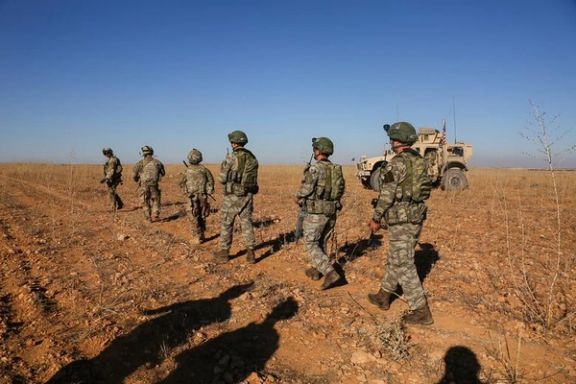
Six US troops in Syria suffered traumatic brain injuries during two attacks last week by Iran-backed militants, the Pentagon said on Thursday.
The US military said they were diagnosed during routine screenings in recent days.
The disclosure further raises the human toll among American forces from strikes and counterstrikes in Syria last week to a total of 12 US troops wounded. The attacks also killed an American contractor and injured another.
This will add more political pressure on the Biden Administration to deter Iran from supporting such attacks in the region.
In Congressional hearings last week and this week, Republican lawmakers accused the administration of being soft on Tehran, which they said is not deterred from killing and injuring Americans.
Of 83 attacks in Iraq and Syria since President Joe Biden took office, just four retaliations have taken place, according to the Pentagon.
Senator Tom Cotton, addressing Secretary of Defense Lloyd Austin in a hearing on Wednesday, said, “What kind of signal do we think this sends to Iran when they can attack us 83 times since Joe Biden has become president and we only respond four?”
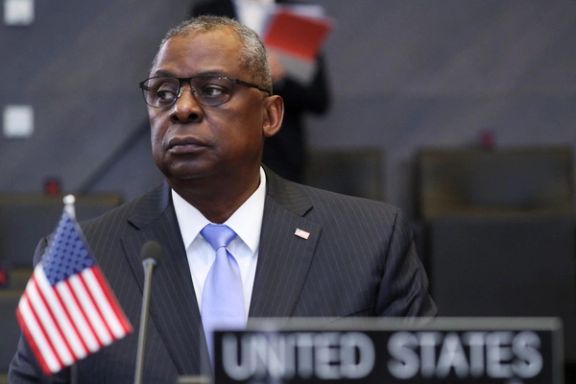
Republicans also accuse the administration of not informing Congress in a timely manner on March 23, while the Senate was debating a bill related to the issue of US forces stationed in the Middle East.
While Austin insisted Wednesday the information was relayed as soon as possible, his attempts to appease the Republicans fell on deaf ears.
“I don't believe you,” slammed Senator Cotton. “I believe that your office specifically withheld notification of this deadly strike against Americans because of the Rubio amendment on which we voted at midday directly touched on exactly this scenario, not repealing the use of force resolutions,” suggesting that the information was withheld because “the President couldn't certify that Iran was no longer attacking us in Iran and Syria”.
Pentagon spokesman Brigadier General Patrick Ryder said four service members suffered traumatic brain injuries at the US base near the Syrian city of Hasaka during a drone attack on March 23. Two others suffered injuries at mission support site Green Village during an attack on March 24.
"All personnel in the vicinity of a blast are screened for traumatic brain injury. So, these additional injuries were identified during post-attack medical screenings," Ryder told a news briefing.
The Pentagon also estimated eight militants were killed during retaliatory US air strikes against two Iran-linked facilities in Syria.
Ryder said the militants killed were not believed to be Iranian but were associated with the Islamic Revolutionary Guard Corps (IRGC).
That toll is lower than the one reported by a Syrian war monitoring group, which estimated that the air strikes and exchanges of fire killed three Syrian troops, 11 Syrian fighters in pro-government militias and five non-Syrian fighters who were aligned with the government.
President Joe Biden on Friday warned Iran that the United States would act forcefully to protect Americans.
The White House said on Monday that the incidents would not trigger a US pullback from its nearly eight-year-old deployment to Syria, where it is battling the remnants of Islamic State.
This is not the first time US troops in the region have been diagnosed with brain injuries from attacks.
In 2020, more than 100 US troops were diagnosed with traumatic brain injuries stemming from a missile attack by Iran against a base in Iraq.
Syria's foreign ministry has condemned last week's US strikes, saying Washington had lied about what was targeted and pledging on Sunday to "end the American occupation" of its territory.
Iran's foreign ministry accused US forces of “terrorist attacks” and targeting "civilian sites."
With reporting by Reuters